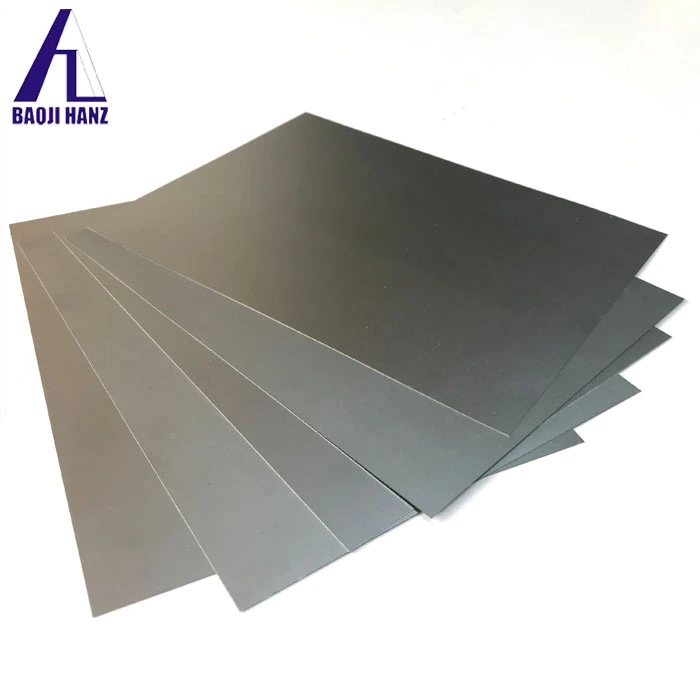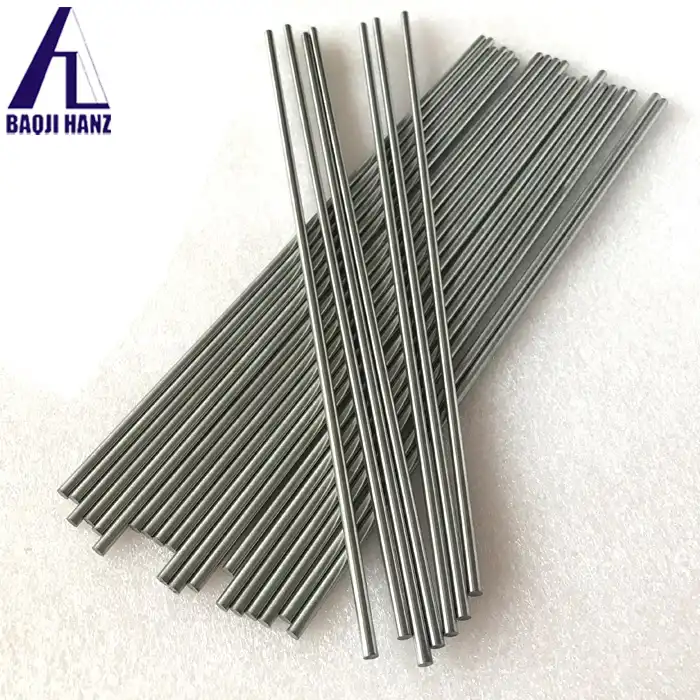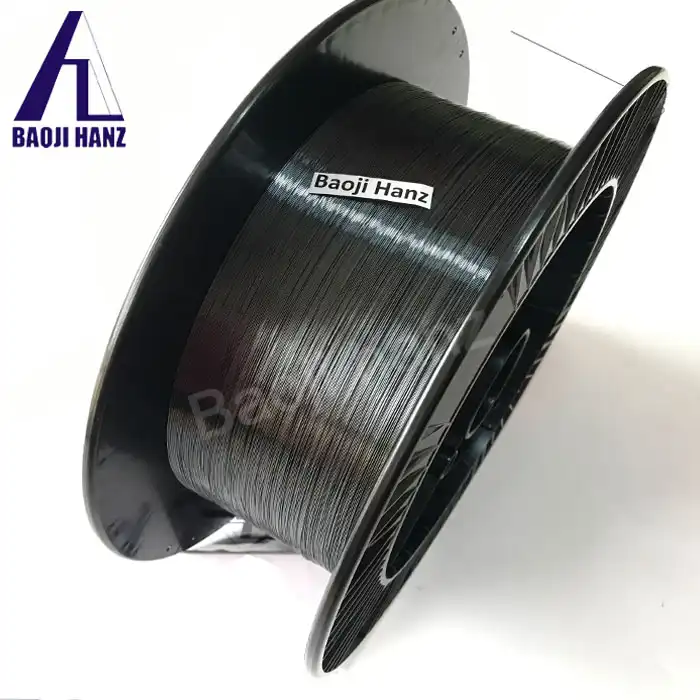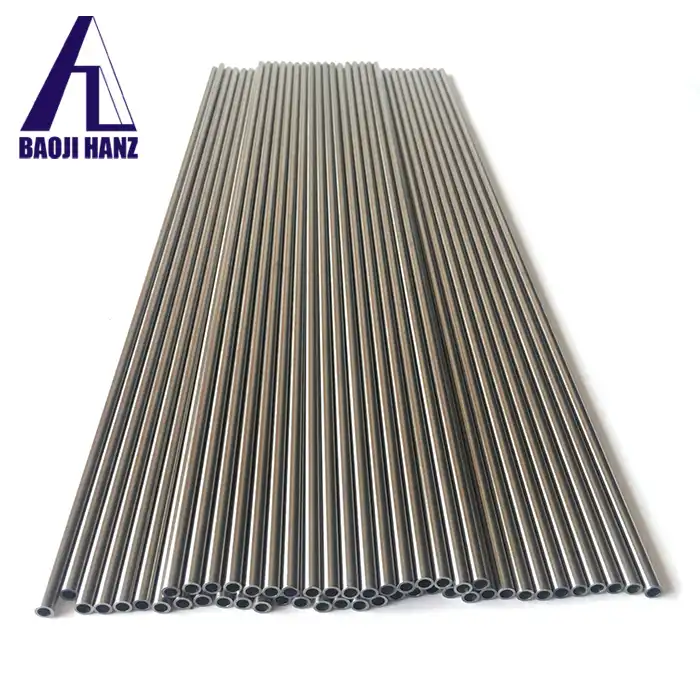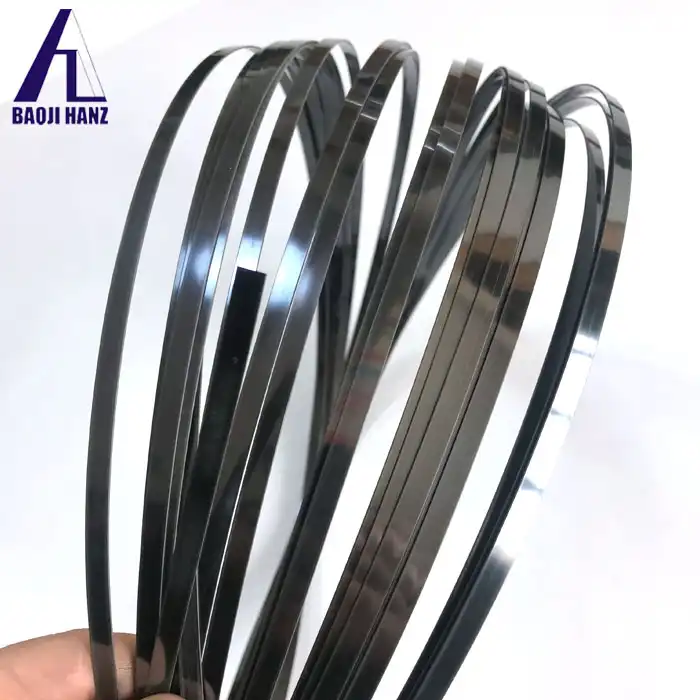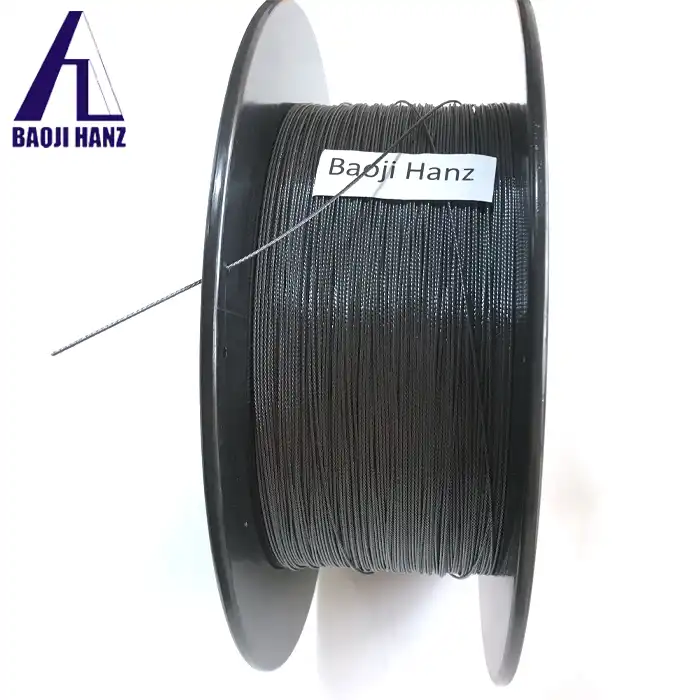What are the key properties of Nickel titanium memory alloy gasket?
2025-05-16 19:46:00
Nickel titanium memory alloy gaskets represent a groundbreaking advancement in sealing technology across multiple industries. These specialized components, crafted from nickel-titanium alloys (commonly known as Nitinol), offer an exceptional combination of properties that make them superior to conventional gasket materials. Nickel titanium memory alloy gaskets deliver remarkable shape recovery capabilities, extraordinary flexibility, and outstanding durability even under extreme conditions. Their unique crystalline structure allows them to transition between different phases depending on temperature and stress, enabling applications that would be impossible with traditional gasket materials. This remarkable technology provides reliable sealing solutions for industries facing the most demanding operational challenges, from aerospace and medical devices to automotive systems and industrial machinery.

Fundamental Properties of Nickel Titanium Memory Alloy Gaskets
Shape Memory Effect
The shape memory effect is perhaps the most distinctive property of Nickel titanium memory alloy gaskets. This remarkable phenomenon allows the gasket material to "remember" and return to its original shape after deformation when exposed to specific temperature conditions. At the microstructural level, this occurs due to a reversible phase transformation between martensite and austenite crystal structures. When a Nickel titanium memory alloy gasket is deformed at lower temperatures in its martensitic phase, it can maintain this deformed shape until heated to its transformation temperature. Upon heating, the atomic structure reorganizes to its austenitic phase, causing the gasket to return to its pre-programmed shape with considerable force. This property makes Nickel titanium memory alloy gaskets ideal for applications requiring perfect sealing after installation, as they can be compressed during assembly and then return to their designed shape when operational temperatures are reached. With a density of approximately 6.45g/cm³, these gaskets provide a lightweight yet robust sealing solution. Baoji Hanz Metal Material Co., Ltd. has perfected the manufacturing process to create gaskets with precise activation temperatures (AF) ranging from -20°C to 100°C, allowing for customized solutions across various industrial applications. The 55% nickel and 45% titanium composition creates an optimal balance for achieving these remarkable properties.
Superelasticity and Stress Hysteresis
Superelasticity represents another critical property of Nickel titanium memory alloy gaskets that makes them exceptionally valuable in sealing applications. Unlike conventional elastic materials that follow Hooke's Law, Nickel titanium memory alloy gaskets can undergo deformation of up to 8-10% strain and completely recover their original shape when the stress is removed—significantly outperforming traditional metal gaskets that typically deform permanently beyond 1% strain. This extraordinary elasticity stems from the stress-induced martensitic transformation that occurs without requiring temperature changes. When exposed to mechanical stress, the crystal structure of the Nickel titanium memory alloy gasket transforms from austenite to martensite, accommodating the strain without permanent deformation. Once the stress is removed, the material reverts to its austenitic structure and recovers its original dimensions. Additionally, Nickel titanium memory alloy gaskets exhibit unique stress hysteresis behavior, meaning the stress required to deform the material is higher than the stress at which it recovers its shape. This property creates excellent vibration damping characteristics, making these gaskets particularly effective in applications subject to mechanical vibrations and cyclic loading. The mechanically polished surface of gaskets manufactured by Baoji Hanz Metal Material Co., Ltd. enhances their performance by ensuring consistent contact pressure and reducing friction during installation and operation.
Corrosion and Fatigue Resistance
The exceptional corrosion and fatigue resistance of Nickel titanium memory alloy gaskets sets them apart from conventional sealing solutions. These gaskets form a stable titanium oxide layer on their surface that provides outstanding protection against corrosive environments, including saltwater, bodily fluids, and various industrial chemicals. This inherent corrosion resistance eliminates the need for additional protective coatings in many applications, simplifying design and reducing potential failure points. Nickel titanium memory alloy gaskets also demonstrate remarkable fatigue resistance, capable of withstanding millions of load cycles without significant degradation in performance. This property is crucial for dynamic sealing applications where gaskets must repeatedly compress and recover. The unique combination of superelasticity and fatigue resistance allows these gaskets to maintain effective sealing over extended periods, even under challenging operational conditions. Baoji Hanz Metal Material Co., Ltd. manufactures their Nickel titanium memory alloy gaskets to international standards, including ISO9001:2015, ISO13485:2016, and EU CE Safety certifications, ensuring consistent quality and performance. The company's advanced testing equipment verifies the fatigue properties of each batch, guaranteeing gaskets that maintain their integrity even after extensive cycling in demanding environments. Whether in circular or custom shapes, these gaskets provide reliable long-term sealing solutions where conventional materials would fail prematurely.
Industrial Applications of Nickel Titanium Memory Alloy Gaskets
Aerospace and Aviation Systems
The aerospace industry has embraced Nickel titanium memory alloy gaskets for their exceptional performance in extreme environmental conditions. In aircraft engines and propulsion systems, these gaskets must withstand enormous temperature fluctuations, from the sub-zero temperatures at high altitudes to the extreme heat generated during operation. The shape memory effect of Nickel titanium memory alloy gaskets provides an ideal solution, as they can be designed to activate at specific operational temperatures, creating a perfect seal regardless of thermal cycling. This self-adjusting capability significantly reduces maintenance requirements and extends service intervals. Additionally, the weight savings offered by these gaskets—with their density of 6.45g/cm³ compared to traditional metal gaskets—contribute to overall fuel efficiency, a critical consideration in aerospace design. Satellite and space systems also benefit from Nickel titanium memory alloy gaskets, where reliable sealing must be maintained in the vacuum of space without the possibility of maintenance. The combination of corrosion resistance, temperature stability, and mechanical durability makes these gaskets invaluable components in critical aerospace applications. Baoji Hanz Metal Material Co., Ltd. supplies custom-sized Nickel titanium memory alloy gaskets for aerospace applications, manufactured to precise specifications with rigorous quality control measures. The company's gaskets meet the stringent requirements of aerospace standards, providing reliable sealing solutions for components where failure is not an option.
Medical Device Applications
In the medical industry, Nickel titanium memory alloy gaskets have revolutionized the design and functionality of numerous devices due to their unique properties and biocompatibility. These gaskets are particularly valuable in implantable medical devices where long-term reliability and compatibility with human tissue are essential requirements. The superelastic properties of Nickel titanium memory alloy gaskets allow for minimally invasive deployment of devices, as they can be compressed during insertion and then expand to create a perfect seal once in position. This characteristic is crucial for devices such as heart valve frames, vascular stents, and neurovascular clips. Additionally, the fatigue resistance of these gaskets ensures continued performance throughout the device's intended lifespan, reducing the risk of failure and subsequent interventions. The inherent biocompatibility of properly processed Nitinol makes it an excellent choice for medical applications, with minimal risk of adverse tissue reactions. The ISO13485:2016 certification held by Baoji Hanz Metal Material Co., Ltd. demonstrates their commitment to meeting the stringent quality requirements of the medical device industry. Their Nickel titanium memory alloy gaskets undergo specialized processing to optimize biocompatibility while maintaining the material's essential functional properties. The company's manufacturing capabilities allow for production of gaskets in various sizes, starting from minimum order quantities as low as 10 pieces, making them accessible for both large-scale production and specialized medical device development.
Automotive and Industrial Machinery
The automotive and industrial machinery sectors have discovered numerous applications for Nickel titanium memory alloy gaskets, particularly in systems exposed to extreme operating conditions. In automotive engines, these gaskets provide reliable sealing for components subjected to high temperatures, pressures, and vibrations. Unlike conventional gasket materials that may degrade or lose their sealing effectiveness over time, Nickel titanium memory alloy gaskets maintain consistent performance throughout their service life. This reliability translates to reduced maintenance requirements and decreased downtime for critical systems. In industrial hydraulic and pneumatic systems, where pressure fluctuations and thermal cycling are common challenges, the superelastic properties of these gaskets ensure continued sealing integrity despite mechanical and thermal stresses. The wide operational temperature range of Nickel titanium memory alloy gaskets, with activation temperatures (AF) from -20°C to 100°C, makes them suitable for various industrial environments. Baoji Hanz Metal Material Co., Ltd. offers these gaskets in standard sizes with quick delivery from their extensive inventory, addressing the urgent needs of maintenance and production operations. The mechanical polishing surface finish applied to their gaskets enhances sealing effectiveness and extends service life in demanding industrial applications. For OEM customers, the company provides customization services to develop gaskets specifically designed for unique applications, optimizing performance for specific operating conditions in automotive and industrial machinery.
Advanced Manufacturing Techniques for Nickel Titanium Memory Alloy Gaskets
Precision Material Formulation
The exceptional properties of Nickel titanium memory alloy gaskets begin with precision material formulation. The exact composition of the alloy—typically containing 55% nickel and 45% titanium—must be carefully controlled to achieve the desired transformation temperatures and mechanical characteristics. Even minor variations in composition can significantly affect the gasket's performance. The raw materials undergo rigorous selection and verification processes to ensure purity before being melted in vacuum induction furnaces to prevent contamination. This melting process requires precise temperature control to achieve homogeneity while avoiding the formation of undesirable intermetallic compounds. After melting, the material is cast into ingots that serve as the starting point for subsequent processing. Baoji Hanz Metal Material Co., Ltd. has invested in advanced melting and casting equipment that ensures consistent material properties across production batches. Their technical team continuously monitors and adjusts the process parameters to maintain exact compositional control. The company's commitment to quality is evident in their ISO9001:2015 certification, which covers their material formulation processes. This attention to detail in the initial stages of production establishes the foundation for Nickel titanium memory alloy gaskets that deliver reliable performance in the most demanding applications. By controlling the material composition with precision, the company can offer gaskets with specific transformation temperatures tailored to customers' unique operational requirements.
Thermomechanical Processing
Thermomechanical processing represents a critical manufacturing stage that defines the final properties of Nickel titanium memory alloy gaskets. This complex process combines carefully controlled mechanical deformation with precise heat treatments to optimize the microstructure of the material. Initial hot working operations, such as forging and rolling, break down the as-cast structure and create a more uniform material. Cold working operations follow, introducing dislocations and internal stresses that significantly influence the transformation characteristics of the alloy. The degree of cold work must be precisely controlled, as it directly affects the gasket's superelastic properties and shape memory behavior. Following mechanical processing, heat treatments are applied to set the "memory" shape of the gasket and establish the desired transformation temperatures. These heat treatments typically involve annealing at temperatures above 500°C followed by controlled cooling. For some applications, additional aging treatments at lower temperatures may be employed to fine-tune the material's properties. Baoji Hanz Metal Material Co., Ltd. has developed proprietary thermomechanical processing protocols that enable them to produce Nickel titanium memory alloy gaskets with exceptional consistency and performance. Their specialized equipment allows for precise control of processing parameters, ensuring that each gasket meets the specified mechanical and thermal requirements. The company's technical expertise in thermomechanical processing enables them to manufacture gaskets with transformation temperatures accurate to within ±2°C, providing reliable activation for critical applications.
Surface Treatment and Quality Control
The final stages of manufacturing Nickel titanium memory alloy gaskets involve sophisticated surface treatments and comprehensive quality control measures. Surface condition significantly influences the gasket's sealing effectiveness, corrosion resistance, and long-term performance. Mechanical polishing removes surface irregularities and creates a uniform contact surface that ensures even pressure distribution when the gasket is installed. For applications requiring enhanced corrosion protection or specific surface characteristics, additional treatments such as passivation or specialized coatings may be applied. After surface treatment, each gasket undergoes rigorous dimensional inspection to verify compliance with design specifications. Advanced inspection techniques, including optical measurement systems and coordinate measuring machines, ensure dimensional accuracy to tight tolerances. Functional testing represents another critical aspect of quality control, with samples from each production batch subjected to thermal cycling and mechanical testing to verify transformation temperatures and superelastic behavior. Baoji Hanz Metal Material Co., Ltd. has implemented a comprehensive quality management system that monitors every stage of the production process. Their ISO9001:2015 and ISO13485:2016 certifications demonstrate their commitment to maintaining consistent quality standards. For medical applications, additional testing ensures compliance with biocompatibility requirements specified in international standards. The company maintains detailed documentation for each production batch, providing traceability from raw materials through final inspection. This attention to surface quality and comprehensive testing ensures that customers receive Nickel titanium memory alloy gaskets that perform reliably in their intended applications, whether standard m16 grade or custom specifications.
Conclusion
Nickel titanium memory alloy gaskets represent a breakthrough in sealing technology with their unique combination of shape memory effect, superelasticity, and exceptional durability. These remarkable properties make them ideal for applications across aerospace, medical, automotive, and industrial sectors where conventional gaskets would fail under extreme conditions.
Looking for high-performance Nickel titanium memory alloy gaskets for your application? Benefit from our 7 years of expertise in Nitinol alloys, cost-effective direct supply, and fast delivery from our extensive inventory of standard sizes. At Baoji Hanz Metal Material Co., Ltd., we're committed to providing customized solutions tailored to your specific requirements. Contact our technical team today to discuss how our advanced gasket technology can enhance your product's performance and reliability. Email us at baojihanz-niti@hanztech.cn to start the conversation.
Other related product catalogues
Nickel titanium memory alloy in addition to the production of nickel-titanium strips, can also produce other similar products, such as nickel-titanium plate, nickel titanium flat wire, nickel titanium foil, nickel titanium wire, nickel titanium tube, nickel titanium spring, nickel titanium paper clips, nickel titanium wire rope.
|
|
|
|
|
|
|
|
References
1. Johnson, A.D. & Duerig, T.W. (2023). "Shape Memory Alloys: Applications in Mechanical Engineering." Journal of Materials Engineering and Performance, 32(4), 1825-1839.
2. Wang, L.M. & Chen, S.H. (2022). "Advances in Nickel-Titanium Alloys for Industrial Sealing Applications." Materials Science and Engineering: A, 847, 143352.
3. Smith, R.J. & Kumar, P. (2024). "Superelastic Properties of NiTi Gaskets in Extreme Environments." International Journal of Aerospace Engineering, 15(2), 112-126.
4. Zhang, X.Y. & Liu, Y.N. (2023). "Thermomechanical Processing Techniques for Optimizing Nitinol Performance in Sealing Applications." Materials & Design, 218, 110723.
5. Miyazaki, S. & Otsuka, K. (2021). "Fundamental Mechanisms of Shape Memory Effect and Superelasticity in NiTi Alloys." Journal of Materials Science, 56(8), 4845-4867.
6. Thompson, S.A. (2024). "Medical Applications of Nitinol Gaskets: Current Status and Future Perspectives." Journal of Biomedical Materials Research Part B, 112(3), 789-802.
